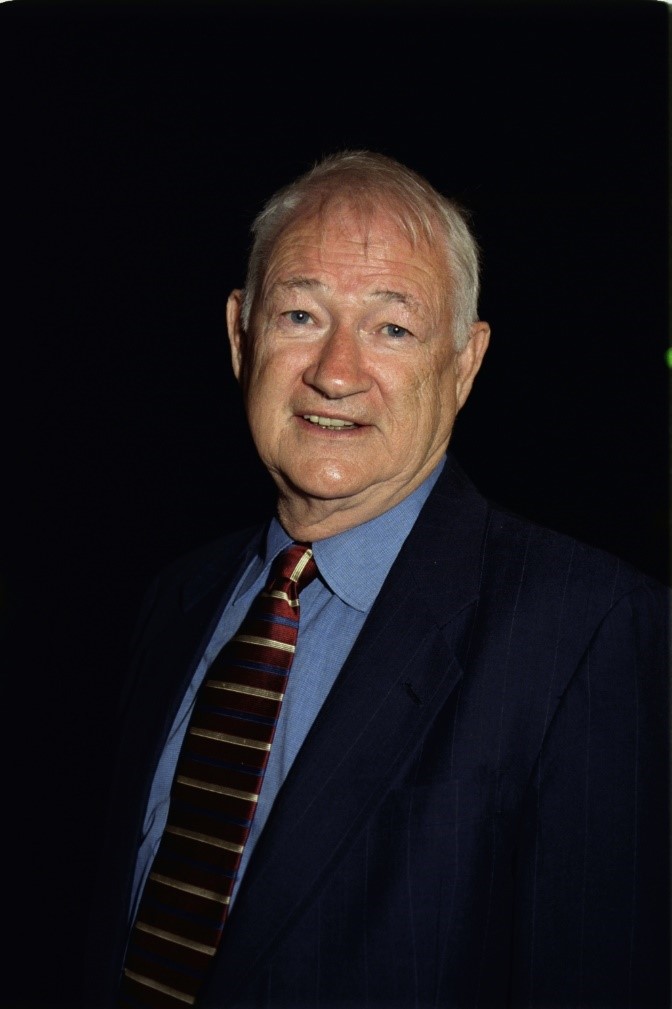
Combining Technology, Scientific Research, and Data – NIH’s Encouragement of the FHIR Standard for Research - October 8
-
Register
- User - Free!
In July, the National Institutes of Health (NIH) issued a notice about the Fast Healthcare Interoperability Resources (FHIR) Standard used to exchange clinical data between information systems. The announcement encourages NIH-funded researchers to use FHIR-compatible data formats to help accelerate the interoperability of data and its use for clinical research purposes.
Join the AAMC and the American Medical Informatics Association (AMIA) for a webinar to learn about NIH's decision to promote the use of FHIR in EHR systems, share ways that the National Library of Medicine (NLM) is seeking input from stakeholders about this notice, and describe the future capabilities of biomedical research made possible through the use of FHIR.
Speakers:
Clem J. McDonald, MD
Chief Health Data Standards Officer
National Library of Medicine
National Institutes of Health
Teresa Zayas-Caban, PhD
Chief Scientist
Office of the National Coordinator for Health Information Technology
Moderator:
W. Ed Hammond, PhD
Director, Duke Center for Health Informatics, Clinical and Translational Science Institute

Clem J. McDonald, MD
Chief Health Data Standards Officer, National Library of Medicine, National Institutes of Health
Dr. McDonald is the Chief Health Data Standards Officer of the National Library of Medicine (NLM)/National Institutes of Health (NIH). For the previous 12 years, Dr. McDonald served as Director of the Lister Hill National Center for Biomedical Communications (LHNCBC) and Scientific Director of its intramural research program.
His research focuses on electronic medical records (EMRs), their use in clinical care and research, the data standards needed to feed EMRs and epidemiologic studies of the clinical databases. He is a member of the National Academy of Sciences and has published more than 300 papers that have garnered 18 thousand citations. Prior to coming to NLM, Dr. McDonald served as a distinguished Professor of Medicine and of Medical Informatics at the Indiana University School of Medicine and the Director of the Regenstrief Institute for Health Care, a privately endowed research institute tied to Indiana University.
Dr. McDonald developed the Regenstrief Medical Record, one of the first electronic health record (EHR) systems, and introduced the first use of decision support in randomized trials of health information systems in a 1976 study (McDonald, 1976). He and his colleagues developed the first U.S. Health Information Exchange (HIE) which was the model for the many HIEs that followed, and which now carries 6 billion results from hospitals across Indiana. He developed the Logical Observation Identifier Names and Codes (LOINC) database to provide universal identifiers for clinical observations, was coauthor of the UCUM standard for computable units of measure, one of the founders and authors of the Health Level 7 (HL7) standard and a major contributor to the genomics reporting chapter of the 2018 V2 laboratory Results message. He is active in the development of the FHIR genomics reporting standard, and FHIR input forms development (Questionnaire and Structured Data Capture) and has developed web-based software tools to generate executable web forms and clinical flowsheets.

Teresa Zayas-Caban, PhD
Chief Scientist, Office of the National Coordinator for Health Information Technology
Dr. Teresa Zayas Cabán is ONC’s Chief Scientist and is responsible for developing and evaluating ONC’s overall scientific efforts and activities. Her division develops, establishes, or recommends scientific policy to the National Coordinator. She directs ONC’s precision medicine initiative (PMI) activities and provides oversight of ONC’s patient-centered outcomes research (PCOR) projects.
Dr. Zayas Cabán was previously the Chief of Health IT research and acting director of the division of health IT at the Agency for Healthcare Research and Quality (AHRQ). While at AHRQ, she set new directions for their funding opportunities and coordinated with federal partners, such as the National Science Foundation.
Before joining AHRQ, she served as a post-doctoral trainee in the computation and informatics in biology and medicine program at the University of Wisconsin-Madison. Dr. Zayas Cabán obtained her doctorate in industrial and systems engineering at the University of Wisconsin-Madison where she was a National Science Foundation graduate research fellow in industrial engineering.

W. Ed Hammond, PhD (Moderator)
Director, Duke Center for Health Informatics, Clinical and Translational Science Institute
Ed Hammond has provided vision and leadership in most aspects of health informatics for over fifty years. He has been engaged with American Medical Informatics Association (AMIA), American College of Medical Informatics (ACMI), International Medical Informatics Association (IMIA), Health Level 7 (HL7) International, International Organization for Standardization Technical Committee 215, and various US government activities over the years. His current research is in data visualization; realizing interoperability using HL7 FHIR®, SMART®, and clinical decision support (CDS) Hooks; app development; registries, EMRs, and data elements. He is also committed to the concept of learning health as the primary way in which we can most effectively increase the quality and performance of health care. He has a National Center for Advancing Translational Science (NCATS) grant to automate and digitize the entire process in support of a single institutional review board (IRB) for multiple site IRBs.

